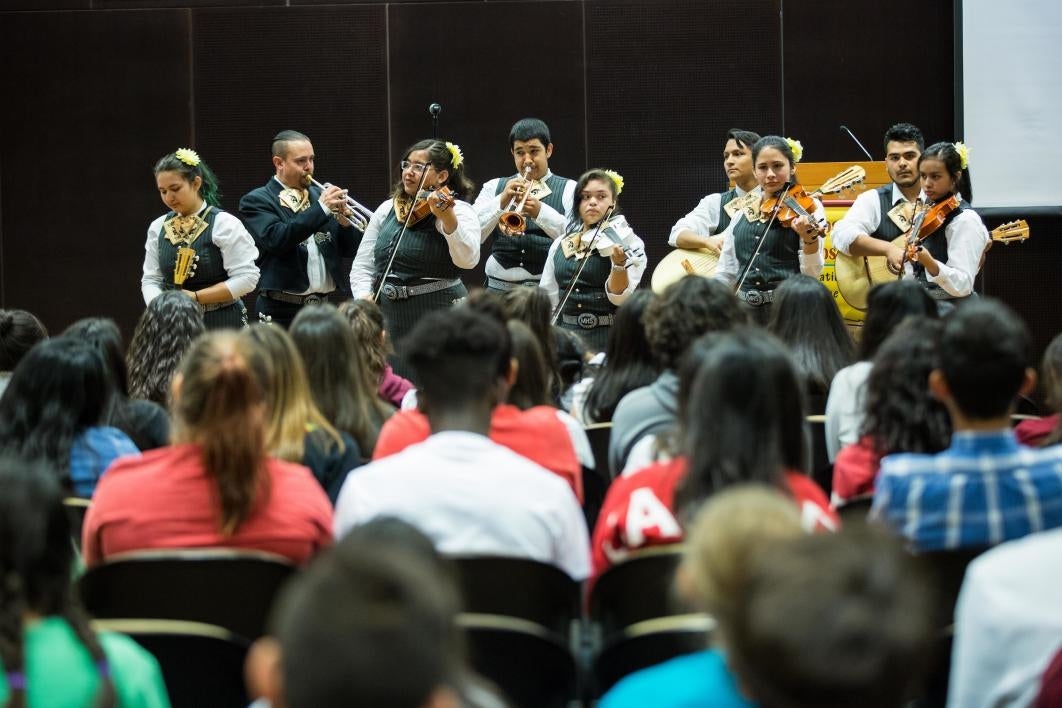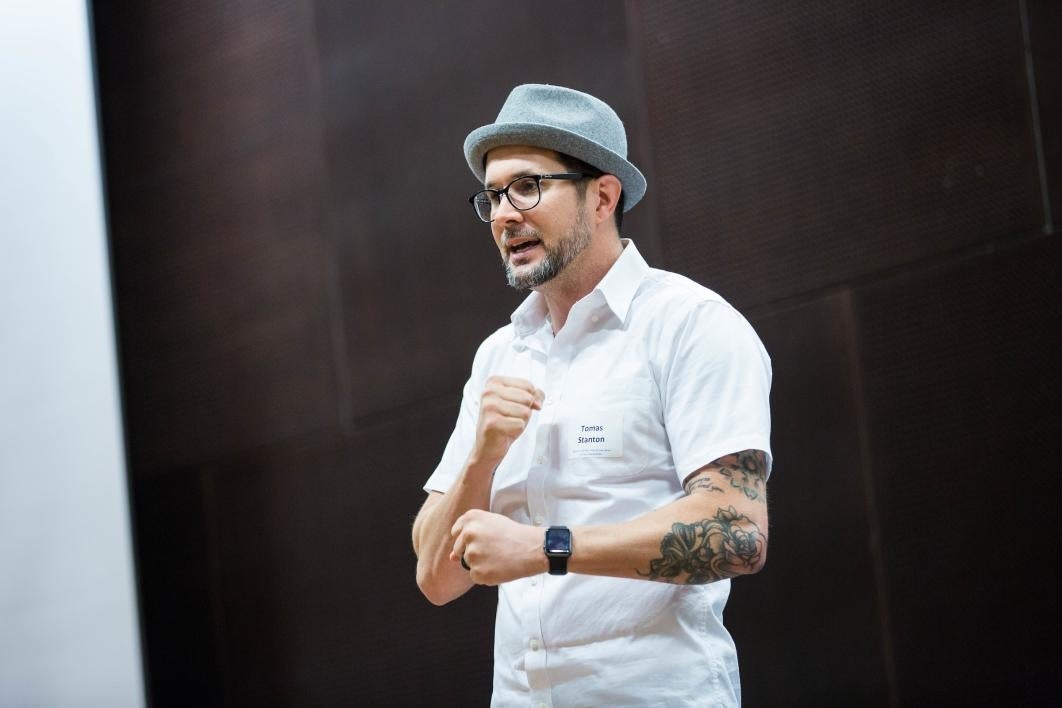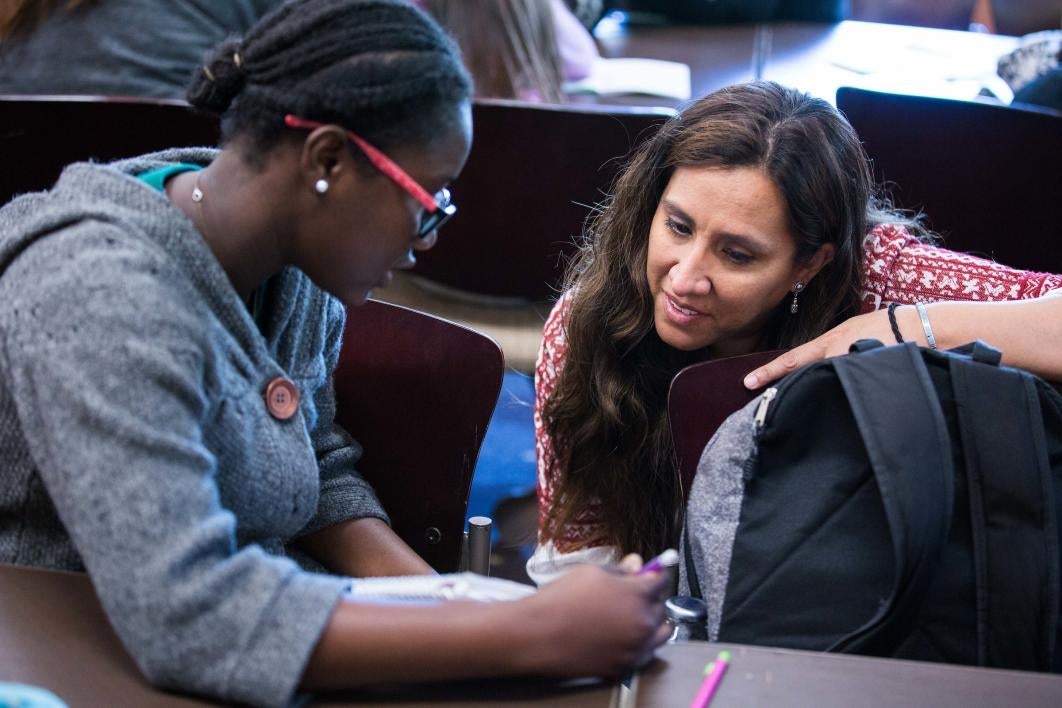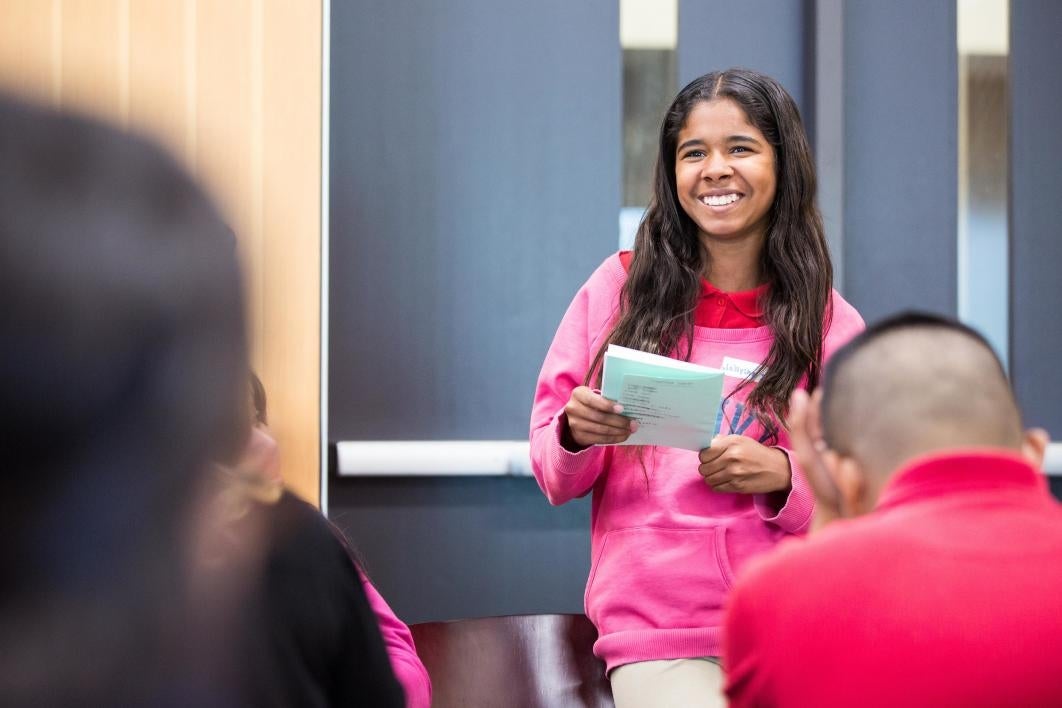It wasn’t until her second year as a doctoral candidate at ASU that Tracey Flores first read Chicana author Gloria Anzaldua, and it changed her life: She remembers it as her first time reading stories she could relate to as a young Latina.
“I was just like, ‘Why didn’t I have this sooner?'” Flores said. At the time, she had been teaching elementary school in the Valley for about eight years, and she couldn’t help but wonder, “What would happen if we brought this kind of literature in (to kid’s lives earlier)?”
This week Flores and a team of helpers did just that when they welcomed roughly 450 junior high and high school students to ASU’s Tempe campus for the seventh annual Dia De Los Ninos/Dia De Los Libros, a celebration of youth, languages, literacy and cultures.
The event brings together Phoenix-area youth with local and national young-adult authors, with a focus on multicultural storytelling. The students get a chance to hear the authors speak about their personal experiences and struggles with reading and writing, and also attend literacy workshops given by the authors, ASU professors and grad students.
ASU English Professor Jim Blasingame helped organize the event with Flores. He said it shines a much-needed light on the cultural richness in Arizona, with its substantial Latino population and 22 indigenous nations.
“A lot of books in the young-adult canon are largely written by DOWMs — dead, old, white men,” Blasingame said. “But there are all these fantastic award-winning books and authors who are still alive” and who better reflect the experiences of Arizona youth. Better still, he added, “They can come here and meet with these kids.”
One who did, Duncan Tonatiuh, told students at the beginning of the day, “It’s important to share our stories, because if we don’t, others won’t either.”
Tonatiuh’s books reflect his Mexican-American heritage in both story and illustrative style, which is heavily influenced by pre-Columbian art with strong Aztec and Mayan overtones. Copies of his book, “Separate Is Never Equal,” were given out at the event.
“This event is really about connecting youth with literature that mirrors their experiences,” Flores said. “It provides a space for them to realize the power their stories and experiences can have to liberate and change lives, and how through sharing their stories and experiences, they can make a difference in the world.”
Flores, who earned her doctorate in English educationFlores also has a bachelor’s in journalism, Spanish and elementary education, as well as a master’s in curriculum and instruction, all from ASU. from ASU in May, will be relinquishing her role as director of the event when she heads to the University of Texas-Austin this summer to become an associate professor of language and literacy.
Celebrating marginalized identities in youth literacy has been one of the defining characteristics of her studies at ASU. Her dissertation, Somos Escritoras/We Are Writers, focused on the sharing of stories between Latina mothers and their adolescent daughters through their participation in a mother-daughter writing workshop.
Video by Deanna Dent/ASU Now
“I grew up surrounded by stories,” Flores said. “When I think about the people who cultivated and nurtured me, it’s my nana and my mom, and even my sisters and my aunts. They told me a lot of stories growing up, stories to protect me and stories to teach me lessons and stories of struggle but also success, and I always carried that with me.”
Flores created Somos Escritoras so that other Latina girls could benefit from having a place to share their stories, where they felt heard and that their voices mattered. She recently received a grant through the Center for Excellence in Education to conduct a second iteration of the program, which will begin in June and take place at ASU’s Downtown Phoenix campus.
When she moves to Texas, she hopes to partner with a similar program there, Con Mi Madre, to continue her work with mother-daughter literacy workshops.
Flores is also in the midst of a two-year fellowship with the National Council of Teachers of English, called “Cultivating New Voices among Scholars of Color.” It’s a prestigious mentorship program for advanced doctoral students and early-career scholars of color, and she said she’s relishing the opportunity to share research and receive feedback from “rock stars” in the field while advancing her personal mission.
“We need to honor and celebrate and create space for girls to find their voices and feel confident in finding their voices,” Flores said, noting how challenging but also liberating it was to earn her doctorate at ASU. “It has been a huge transformation for me, as a woman … in how I view the world, how I’m raising my daughter, in how I’m navigating the academy and the things that are important for me. And so if we can create classrooms and spaces like that for girls, I just think that we could make a huge difference in the world.”
Top photo: (From left) Imagine Desert West seventh-graders Brisa Silis and Arely Castro read the book "Separate Is Never Equal," copies of which they received during Dia De Los Ninos/Dia De Los Libro on Monday on the Tempe campus. The book's author, Duncan Tonatiuh, had told students earlier that day, “It’s important to share our stories, because if we don’t, others won’t either.” Photo by Deanna Dent/ASU Now
More Arts, humanities and education

ASU alum's humanities background led to fulfilling job with the governor's office
As a student, Arizona State University alumna Sambo Dul was a triple major in Spanish, political science and economics. After graduating, she leveraged the skills she cultivated in college —…

ASU English professor directs new Native play 'Antíkoni'
Over the last three years, Madeline Sayet toured the United States to tell her story in the autobiographical solo-performance play “Where We Belong.” Now, the clinical associate professor in…

ASU student finds connection to his family's history in dance archives
First-year graduate student Garrett Keeto was visiting the Cross-Cultural Dance Resources Collections at Arizona State University as part of a course project when he discovered something unexpected:…




